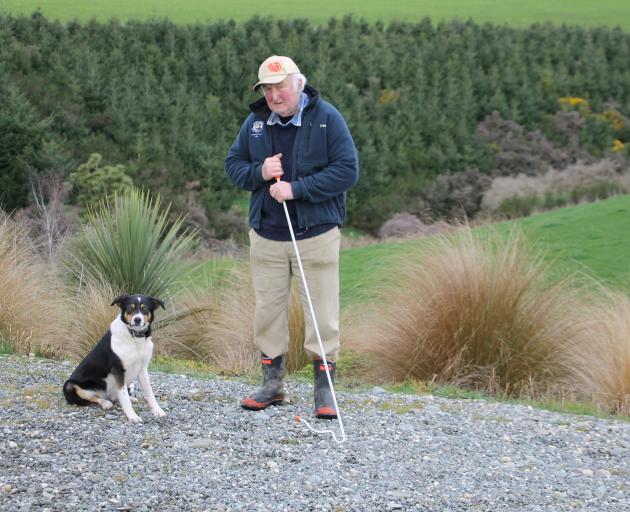
Farmer Henry McFadzien said he had no troubles with his stock on the HT swede.
"Last year we were among the 566 farmers who thought we were getting the new HT strain, Hawkestone, but it turned out it was a botch-up in the distribution of the seed and we were given HT swede, and everyone of us would have thought it had been pulled off the market, but it was still hanging around," Mr McFadzien said.
Mr McFadzien, who is also a rural columnist, said he and his wife Audrey had fed their stock off early from the first of June at their Ferndale farm and had been cautious.
"We've run out of feed with the carry overs and there was no problem at all and now the late calvers are still on them and it's a good three months and there's been no problem."
Mr McFadzien said his neighbour had fed hoggets with the HT swedes and also had no problems, but had supplemented them with baleage.
"With that number of farmers if there had been big problems there would have been big headlines in the paper and now the season's finished I wouldn't expect to hear any more," Mr McFadzien said.
Southland Federated Farmers meat and wool chairwoman Bernadette Hunt said everything had been fairly quiet, so she suspected most people had finished feeding the HT swedes by now.
"There hasn't been any issues raised at this stage," Mrs Hunt said.
Mrs Hunt said the warm weather meant the swedes would be bolting and that was when they could cause issues.
"DairyNZ said don't feed the swedes once they start bolting," Mrs Hunt said.
Mrs Hunt said she and her husband Alistair had a small amount of HT swedes on their Chatton farm, but had no problems and supplemented stock with other feed.
"There's been no widespread issues as people have followed best practice advice."
Mrs Hunt said the compensation process with PGG Wrightson allowed people one claim and many farmers would start this process as they finished calving.
Mrs Hunt said PGG Wrightson had said no-one would be worse or better off from the compensation process, so Federated Farms would keep an eye on this process.
Southland Rural Support Trust co-ordinator Lindsay Wright said the trust had not received many calls for HT swede issues.
Mr Wright said it was difficult to say why people had not called, but said it could possibly be because they knew how to deal with the issue themselves this time around.
"It's out there what's happened and we're here if people need support," Mr Wright said.
Mr Wright's advice to those affected is to discuss queries with their stock agent. Rural Support was also available.
Glucosinolates explained
All brassica crops contained glucosinolates (GSL) which were concentrated on the leaf portion of the crop, Vet South large animal veterinarian Daniel Cragg said.
He said the GSLs were broken down in the rumen to nitriles which, in small amounts, could be broken down safely by the liver.
However, GSLs/nitriles in high amounts could be severely toxic to the liver.
"During certain climatic conditions (mild or warm autumn/winters with a lack frosts) HT swedes contain a significantly higher amount of GSLs than any other type of crop,"
"This can then result in high enough concentration to be toxic to the liver.
"We then see signs associated with liver disease and these include sudden death, photosensitivity, weight loss, and lots of other ongoing issues."
Mr Cragg said this meant HT crops containing high GSL could only be fed to stock in much smaller proportions.
- Ashleigh Martin













